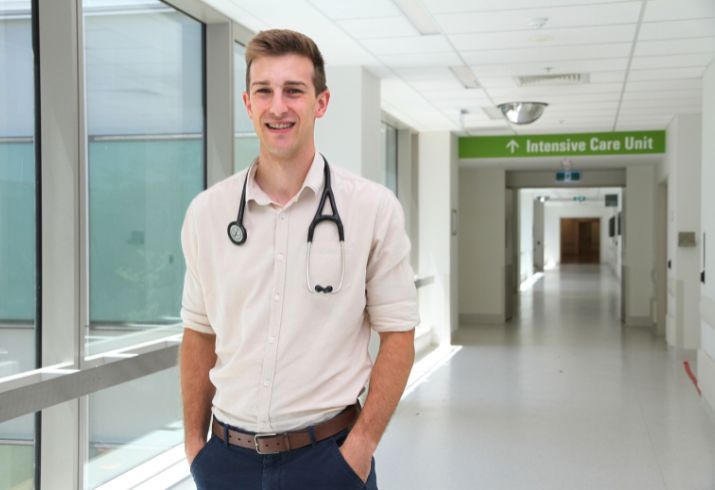Faecal microbiota transplantation helping ICU patients
 ROCIT-FMT trial investigator Dr Henco Nel
ROCIT-FMT trial investigator Dr Henco Nel
A pilot study at Fiona Stanley Hospital (FSH) is investigating the role that faecal microbiota transplantation (FMT) may play in providing lifesaving treatment for critically ill intensive care unit (ICU) patients.
Termed the ‘ROCIT-FMT’ trial, the study is investigating if FMT, supplied by Australian Red Cross Lifeblood, may help restore a healthy gut in ICU patients and improve their recovery and long-term outcomes.
FMT involves taking donated stool from a healthy voluntary donor, testing and processing it, before transferring it into the gut of a sick patient. The idea behind FMT is that you can transfer the donor's healthy gut flora to a patient and potentially restore a healthy balance of gut bacteria.
ROCIT-FMT trial investigator Dr Henco Nel said that patients who require prolonged admission to the ICU are known to have a significant imbalance of good and bad gut bacteria.
"The human digestive system (or ‘gut’) has millions of tiny living organisms and bacteria within it and if there are too many of the wrong type of bacteria in our gut, it can contribute to severe illness," Henco said.
"This imbalance, known as 'dysbiosis', may become a driver of critical illness, contributing to prolonged ICU stay.
"Outcomes for ICU patients with persistent critical illness remain poor and current therapies are largely supportive without addressing the underlying pathophysiology."
Henco said the results of the trial are so far promising, and the trial is ongoing.
Currently in Australia, FMT is approved for the treatment of Clostridioides difficile infection, a condition involving overgrowth of bad bacteria in a person’s gut. FMT is also under investigation as a potential therapeutic intervention for a broad range of conditions exhibiting dysbiosis.
For more information on Lifeblood FMT, or to sign up to become a microbiota donor, visit Australian Red Cross Lifeblood (external link).
Keep up to date with our news and achievements
Find out more on Facebook (external site) or LinkedIn (external site)

